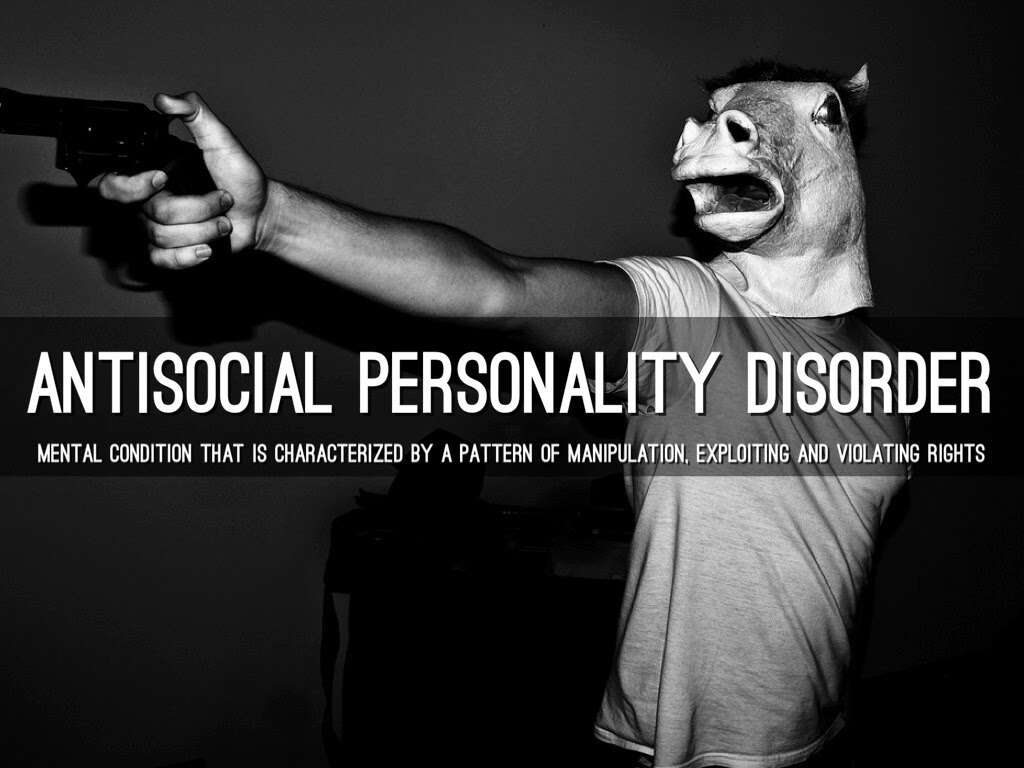What Is a Antisocial Personality Disorder?
Personality disorders are a unique kind of mental health diagnosis used to categorize certain patterns of thought and behavior that deviates from societal norms. Often, to be considered a personality disorder, these patterns must be deeply ingrained and unhealthy in the ways they influence the individual to think about themselves and relate to others.
There are 10 recognized types of personality disorders, including antisocial personality disorder. While all types of personality disorders can wreak havoc in the lives of the individual living with the condition and their loved ones, antisocial personality disorder is especially troubling.
1. What is Antisocial Personality Disorder?
Someone with antisocial personality disorder may be referred to as a sociopath, although this term is often avoided in the field of mental health due to the stigma that comes with it. People with this condition are often perceived as manipulative, hurtful, impulsive, and selfish. Their behaviors often deviate greatly from normal behavior.
One of the main characteristics of antisocial personality disorder is a complete disregard for laws and regulations. People with this condition also struggle to empathize with others, even if their mannerisms may make them appear charming on the outside. Often, people with this condition use relationships to take advantage of others.
2. What are the Symptoms of Antisocial Personality Disorder?
Common symptoms of antisocial personality disorder include deceitfulness, remorselessness, and irritability. These behaviors often manifest in the individual’s relationships with other people. For some individuals, violence is an issue as well.
Other symptoms people with the disorder often show are recklessness, impulsiveness, and irresponsibility. This group of symptoms most often affects the individual’s work life and potentially puts the individual at risk of harm or death due to reckless behavior.

3. What Are Common Consequences of Antisocial Personality Disorder?
People with antisocial personality disorder often struggle to maintain relationships with others, including family members. While some people with this condition are able to put on a charismatic front, many people with this personality disorder are not able to relate to others on a meaningful level.
Incarceration, substance abuse, and homelessness are other common outcomes of this condition. Since irresponsibility is a symptom, it is difficult for people diagnosed with this condition to hold a job, battle addiction, or seek help for destructive behaviors.
4. What Causes Antisocial Personality Disorder?
There is often not a direct cause of personality disorders, which can make it difficult to understand why someone may develop antisocial personality disorder. A number of factors go into the development of anyone’s personality, whether they fall under normal or deviant patterns of behavior.
For people with antisocial personality disorder, a combination of genetic disposition and environmental factors are likely to blame. Most likely, there are certain biological factors that make a person more susceptible to developing the condition, while certain life events, especially those that occur during childhood, trigger it.

5. When is the Onset of Antisocial Personality Disorder?
Antisocial personality disorder is considered an adult disease, so children or adolescents under the age of 18 who exhibit any of these symptoms cannot receive a diagnosis of it. Rather, these children would likely be diagnosed as having a conduct disorder that may later develop into antisocial personality disorder.
However, to receive a diagnosis of antisocial personality disorder, an individual must have shown symptoms before the age of 15. Often, these symptoms are most prevalent and severe when the individual is in the teen years and early adulthood. 80% of people show symptoms by the time they are 11.
6. Who is at the Highest Risk of Developing Antisocial Personality Disorder?
Antisocial personality disorder is more prevalent among men than women; however, it is possible for women to receive this diagnosis as well. As many as 3% of men have this disorder, compared to 1% of women. Additionally, 47% of male inmates and 21% of female inmates have the disorder.
People who grew up in a traumatic, abusive environment are more likely to show symptoms of antisocial personality disorder. Having received a diagnosis of a conduct disorder is another common risk factor.

7. How Can Someone with Antisocial Personality Disorder Get Help?
Unfortunately, many people with antisocial personality disorder are unaware they have an issue or are unwilling to seek assistance. Often, help comes in the form of rehabilitation after incarceration or intervention from relatives seeking treatment for their loved one. However, being in prison can also make symptoms worse if the individual is exposed to others with similar patterns of behavior.
Reaching out to a therapist is often the first step for receiving treatment. Early intervention is ideal, which can include connecting a child with a conduct disorder with a mental health professional when symptoms and negative outcomes are first detected.
8. What Are the Treatment Options for People with Antisocial Personality Disorder?
Treatment for antisocial personality disorder often involves a combination of psychotherapy, cognitive therapy, and behavioral therapy. The aim of these treatments is to help people with the condition change their thought patterns, feel rewarded for positive behaviors, and learn how to relate better to others.
Medications may be used to help with anxiety or depression if present; however, there is no medication available to treat antisocial personality disorder specifically. Part of the treatment may also be addressing other destructive behaviors, such as substance abuse.

9. What is the Prognosis for a Person with Antisocial Personality Disorder?
Antisocial personality disorder is a lifelong disease that can be potentially managed but not entirely cured. In some people, aggressive behaviors and thought patterns become less severe with age. Additionally, treatment and management have allowed some people to carry out a more normal life. However, some symptoms will always remain, as completely changing a person’s personality is not possible.
Early intervention can help individuals avoid suicidal behaviors or violent actions, but the outlook is not very positive. The mortality rate is 8.5 times higher for individuals with antisocial disorder than for people with other mental health disorders. This can be due to suicide, alcoholism, or other unhealthy behaviors that stem from the condition.
10. What Resources are Available for Loved Ones of Someone with Antisocial Personality Disorder?
Living or interacting with someone who antisocial personality disorder can be very hard to manage for loved ones. Group therapy or individual counseling can be helpful for providing useful information and resources that family members and friends can rely on.
Since violence toward themselves and others is common for people with this condition, loved ones should know who to call in difficult situations where immediate help is needed. Numbers to always have on hand in case of an emergency include the National Suicide Lifeline at 800-273-8255 and the Crisis Text Line at 741741.











